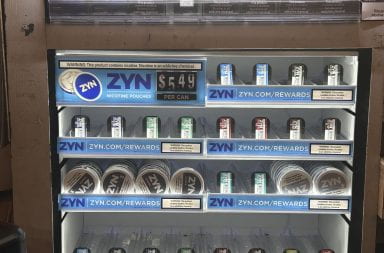Ohio State University’s motto is “education for citizenship,” but for Kiahini Bates, an Ohio State alumna, her citizenship full of adversity provides life lessons that can’t be taught in school.
Bates overcame hereditary drug addiction, teen pregnancy, grief and homelessness to graduate from Ohio State with two master’s degrees and forge a successful career.
Bates is one of six kids who were raised in the South Bronx. With growing violence in the city, the Bates family moved to Columbus, Ohio.
In 1986, Bates’ parents became drug addicts, and Bates said she lived a rough life, being homeless several times and being put in situations where she had to fight drug dealers.
“The drug dealers felt like just because our parents are addicts, that meant we were weak, but we grew up in a hood. There was nothing weak about us,” she said. “There was no way I was going to allow my family to be disrespected.”
At the age of 15, Bates became pregnant and gave birth to her daughter Malia in 1999. After high school, Bates worked as a certified nursing assistant at a hospital where she met her ex-husband; she was 19 when they eloped.
“He was the guy that took me away from the hell I was living at home,” she said. “He was my knight in shining armor.”
After their three-year marriage ended, Bates was a single mother who was a full-time student in graduate school working full time to support her parents and siblings. Drained of strength and energy to the point of exhaustion, Bates got hooked on pain pills.
“I was addicted. I would take pain pills more than five times a day,” Bates said.
Bates said drugs were the only way she could cope with stress, and the pills gave her the energy she was looking for. It was a quick fix, she said.
After spending five years with her current husband, Bates said she finally admitted to him that she was a drug addict. Bates’ husband got her help through rehab, and after years of struggling she was able to get clean.
It took 13 years of trying for Bates to conceive, because of her polycystic ovary syndrome, a set of symptoms caused by elevated levels of hormones which regulate the development of male characteristics. Finally, Bates and her husband gave birth to their first child together, KyRell.
Motherhood has not been easy for Bates, either. Donovan, Bates’ stepson who she had been raising since he was 5 years old, died after being shot five times in 2017.
“If I did not seek help, I would’ve relapsed; I had never experienced that kind of grief. Donovan’s death brought on so much depression,” Bates said.
A year later, Bates’ brother reached out to her seeking help for drug addiction, but her brother’s Medicaid plan did not cover rehab facilities, she said. Bates said she couldn’t help him.
“My big brother has always been my superhero. First, my daddy, now my big brother; the two men who were supposed to protect me are now weak because of a drug,” Bates said. “It hurts seeing them not able to get help when they need it.”
Today, Bates, with her two master’s degrees, is a mother of three kids, has been married for 12 years and works as a financial specialist for a health care company.
Bates said that her advice to other women in her position is that life goes on. Bates is living proof of that.



